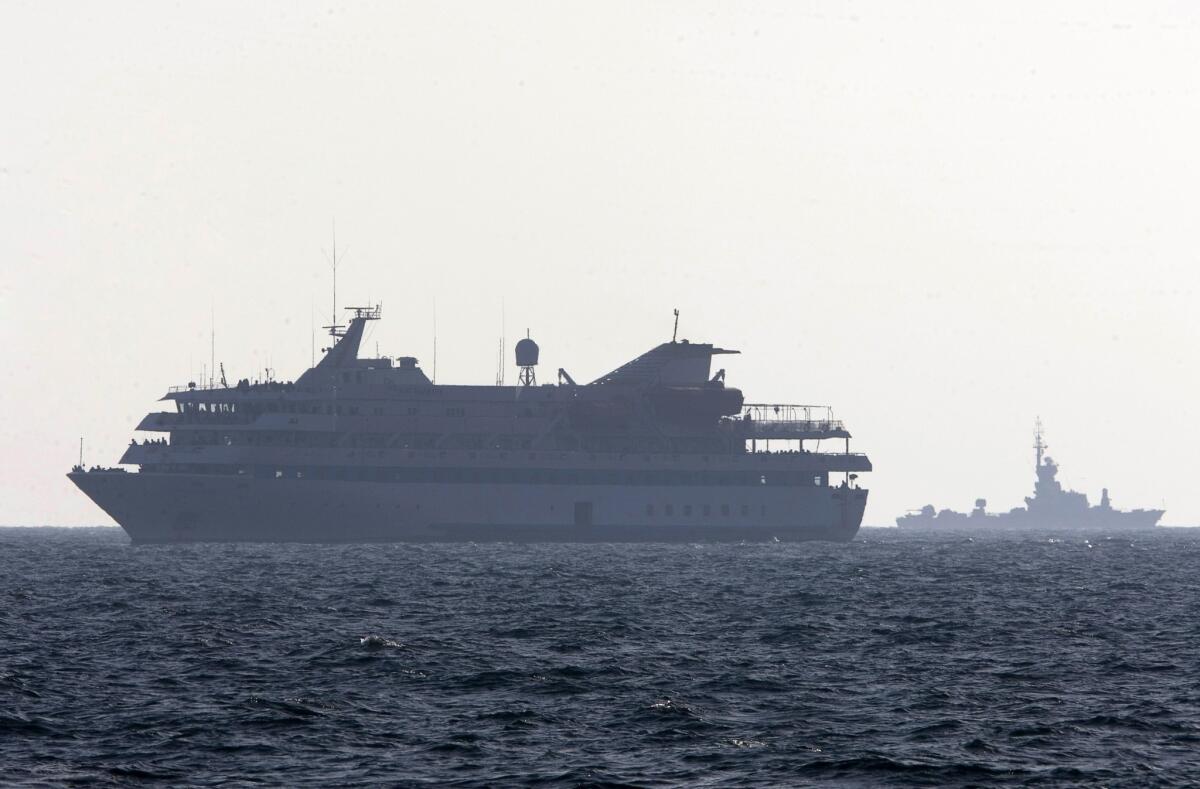International court will not prosecute Israel in aid flotilla case

War crimes may have been committed by Israeli forces during their deadly interception of an aid ship headed for the Gaza Strip in 2010, but the case does not justify prosecution at the International Criminal Court, court officials said Thursday.
Prosecutor Fatou Bensouda announced that a preliminary investigation led her to conclude that “there is a reasonable basis” to believe war crimes were committed May 31, 2010, when Israeli forces stormed the Mavi Marmara. It was the lead ship in a flotilla aiming to break the blockade Israel imposed on Gaza after the coastal enclave was taken over by the Palestinian militant group Hamas.
The case, however, lacks the “sufficient gravity” required for the court to pursue it further, despite the deaths of eight Turkish citizens and one Turkish American and injuries to others on the ship, she said.
“Without in any way minimizing the impact of the alleged crimes on the victims and their families ... the ICC shall prioritize war crimes committed on a large scale or pursuant to plan or policy,” said Bensouda, who declared the preliminary investigation closed.
Prosecutors said in a 61-page report that Israeli forces may have committed crimes of willful killing, willfully causing serious injury and committing outrages upon personal dignity, the Associated Press reported.
The incident caused a deep rift in relations between Israel and Turkey, once-close allies who were already in deep dispute over Israel’s policies toward Gaza. Relations never recovered despite efforts, including by the U.S., to reconcile the two countries.
The International Criminal Court in The Hague opened a preliminary investigation of the incident in 2013, after a law firm in Istanbul, Turkey, filed a request to investigate Israel for the lethal interception. The referral was filed on behalf of the Comoros Islands, under whose flag the ship sailed. The Comoros are party to the Rome Statute that governs the court. Neither Israel nor Turkey have signed it.
Ramazan Ariturk, a lawyer representing Comoros, told reporters in Istanbul that the moral and legal struggle “in the name of humanity” was not over.
“We will object to a higher court at the International Criminal Court and we believe without a doubt that we will prevail,” Ariturk said, according to the AP.
In a statement issued by the Foreign Ministry, Israel welcomed the bottom line, with reservations about the court’s reasoning.
“Israel is of the view that there was no basis to open a preliminary examination in the first place,” the statement said. It added Israel’s regret that the time and resources of the institution “established to combat impunity for the worst atrocities in the world” were spent on a complaint that was “legally unfounded and politically motivated.”
Israel said the prosecutor’s statement did not mention the use of violence against the soldiers that made them resort to use of force.
Sobelman is a special correspondent.
More to Read
Start your day right
Sign up for Essential California for news, features and recommendations from the L.A. Times and beyond in your inbox six days a week.
You may occasionally receive promotional content from the Los Angeles Times.






